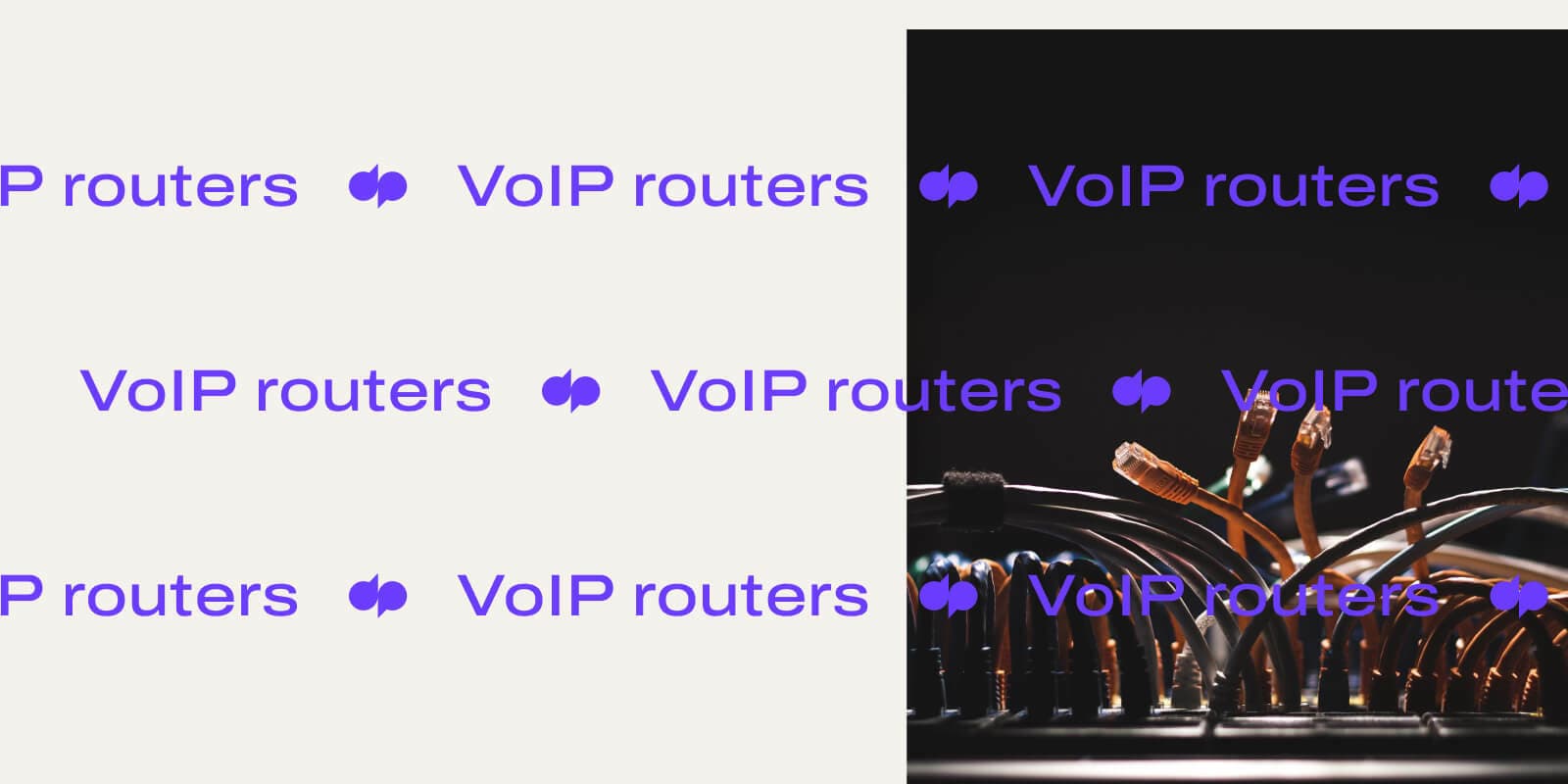
Tags
Share
Whether you’re based out of a tiny office on the edge of the Outback, or in the heart of Brisbane, you probably need the internet to work. This is especially true if you work from home and need to stay in touch with your teammates.
And if you need to talk to prospects, customers, or clients? Your internet connection had better be good.
Thanks to VoIP technology, we can even make phone calls—yes, over the internet. You know what that means: No more long-distance charges!
But even if you have a great internet connection and UCaaS solution, you still need one important thing: a router with VoIP capabilities..
But first… What are VoIP routers?
VoIP routers are what let you make those phone calls over an internet connection from your internet service provider, rather than traditional telephony methods. There are both dual-band (two signals) and tri-band (three signals) routers, depending on what speeds you need.
Most routers have something called high Quality of Service (QoS). This means that even if the network is experiencing high volumes of traffic, any VoIP call you make will not be interrupted.
👉 Dialpad tip:
If your business has multiple locations, installing VoIP routers in each location means you don’t have to pay to make phone calls at those locations, since all calls will be made through your internet connection.
The 10 best VoIP routers on the market
So, you have a rough idea of what you need or want your router to do, and how you want it to perform.
But how will different routers affect those essential features you regularly use on your software and apps? For example, if you’re joining video meetings every day, how will your router impact the quality of those calls? (How much pixelation can you really stand?)
Plus, you’ll want to know that the router you choose is secure—the average cost of a data breach in Australia is $3.35 million, which would put a dent in the profits of even the largest business!
Ready to walk through how to choose the router that fits best with your day-to-day business needs? (Don’t worry, we’re not going to start throwing around terms like "fxs ports" and "SIP ALG.")
Let's look at some routers.
1. Sonicwall TZ Series
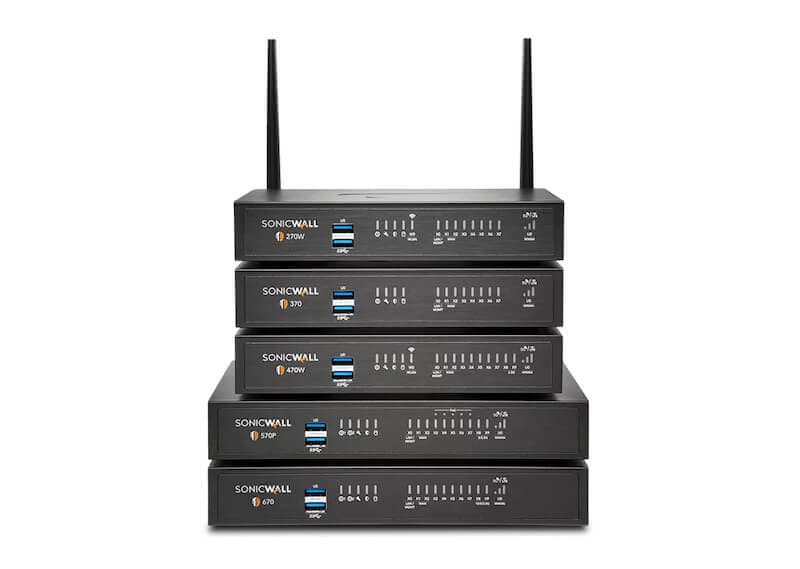
Cybersecurity is a bigger issue than ever before, especially with so many people now working remotely. Protecting your networks (and your data) is crucial, particularly for if you work at a smaller business that may not be able to afford a phone system with enterprise level protection.
The TZ series is designed with those businesses in mind (as well as for a business’s branch locations).
The series avoids the complexity of some firewall systems and is not only easy to install and operate, but also so easy to manage that even the least tech-savvy person can use it.
Bonus: It can detect even the most sophisticated of threats and attacks, and gives you advanced security and networking features, including cloud-based sandboxing.
👉 Dialpad tip:
Need to take customer calls and have video meetings from home? Dialpad is a unified communications (phone, messaging, video—even a contact centre) platform that has enterprise level security.

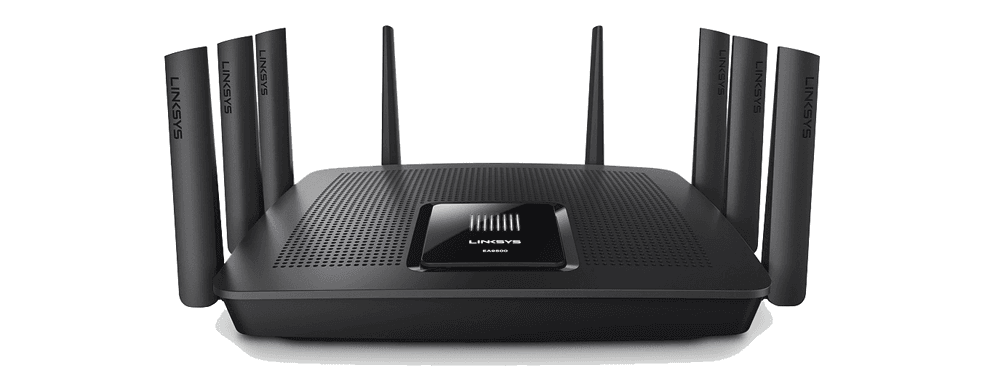
If you’re working remotely from home, the EA9500 is a great choice.
It was specifically designed as a dual purpose unit for both home office and entertainment Wi-Fi use. So if you’re doing a lot of streaming and working from home, it’s perfect.
Another perk is the router uses Mu-MIMO so that multiple people can access the network simultaneously without compromising on speeds.
If you’re using multiple devices, the EA9500 treats them all (laptops, phones, Smart TVs, and so on) as if each had its own dedicated router. This means you could be taking part in a lag-free video call (on Dialpad!) while your family is online, watching a streaming TV show, and gaming.
👀 Interested in remote or hybrid work tips?
Grab the Hybrid Work Playbook, which includes real-life case studies and breaks down all things hybrid + remote, from building and sustaining a hybrid workforce to equipping your team for success.
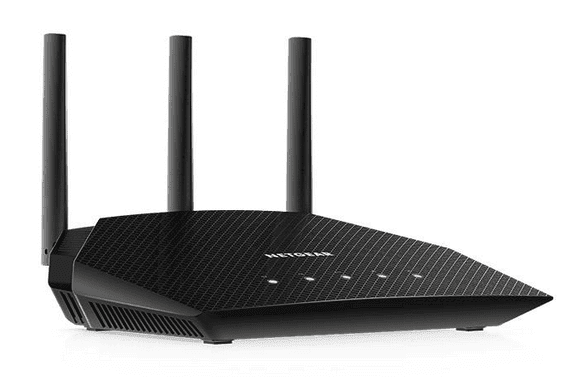
The RAX10 is another router that would suit home office and entertainment use, though it could also work well in an office environment.
It can provide Wi-Fi speeds of up to 1.8Gbps (600 + 1200Mbps) and will give optimum performance for everything from online gaming and video calls, through to controlling your smart home.
For families, one bonus of the AC1750 is the NETGEARSmart Parental Controls that allow you to manage both the time your kids spend online and the content they access. That could have some handy business uses, too. Not that you should treat staff like kids, of course (whether they act like it or not).
This router can cover up to 1,500 square feet from just one unit. That’s enough to cover most average-sized apartment units without any boosters. It also offers smooth 4K UHD streaming to Smart TVs, mobile devices, and gaming consoles.
4. NETGEAR Nighthawk R7000 AC1900
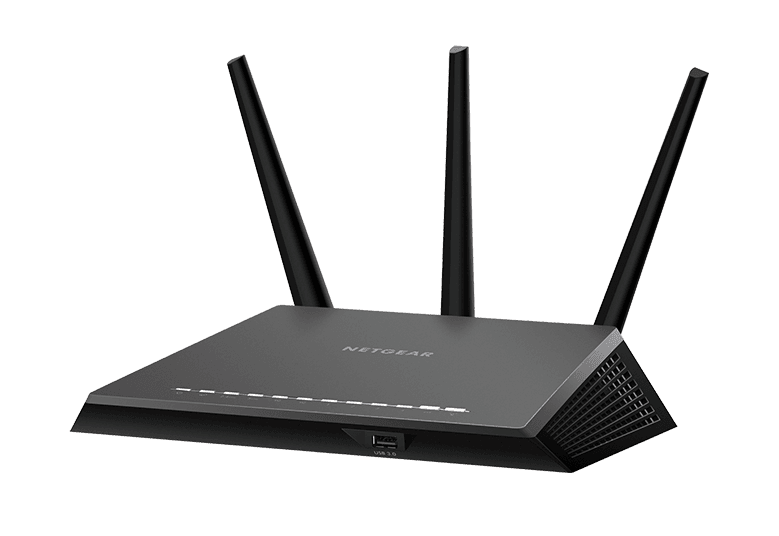
If security is a major concern, then the AC1900 may be for you. As well as super fast Wi-Fi speeds of up to 1.9Gbps, this unit also comes with NETGEAR Armor™, which provides advanced cyber security protection.
👉 Dialpad tip:
Speaking of security, Dialpad offers strict levels of security for businesses, helping them to be compliant with the 1988 Privacy Act and other regulatory requirements.
Like the AC1750, the AC1900 has smart parental control options. And one subscription allows you to connect an unlimited number of devices, from your phones and computers or laptops, to any smart devices such as cameras and thermostats.
The powerful dual-core 1GHz processor that powers the unit boosts any type of performance from wireless to WAN to LAN.
5. TP-Link Archer VR2800
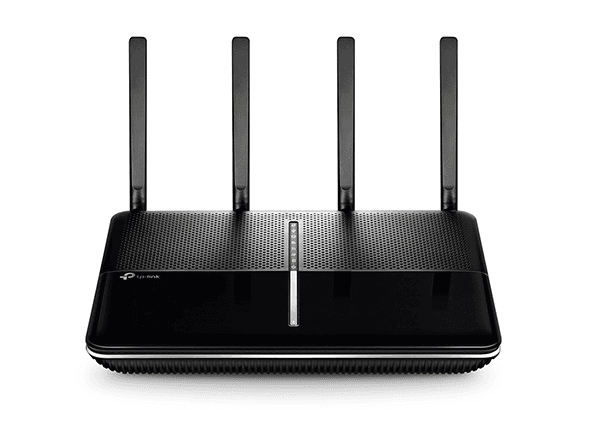
Another great choice for home-based networks, the VR2800 claims to be the fastest VDSL modem router around, and can run at 2167Mbps on 5GHz (or 600Mbps on 2.4GHz).
It also offers ports for VDSL (Very high-speed Digital Subscriber Line) with broadband speeds of up to 100Mbps.
One of the big advantages of the VR2800 is that its four antennas give you better and clearer coverage throughout your home. And the unit is powered by a 1GHz dual-core CPU with two co-processors, which means it’ll constantly deliver a high level of performance.
6. D-Link COVR-X1873
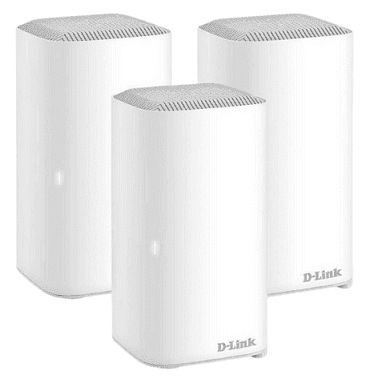
This dual-band system combines next-generation Wi-Fi 6 and mesh technology at AX1800 speeds, so it’s ideal for large homes or offices with multiple connected devices. Smart steering technology automatically directs the device you’re using to the optimum wireless band, depending on your current network traffic.
The easy-to-install router comes with four Gigabit Ethernet LAN ports per COVR Point, as well as an Gigabit Ethernet WAN port for optional wired connectivity. It supports the latest WPA3 encryption and also gives you smart roaming, MU-MIMO, and QoS.
7. Asus BRT-AC828
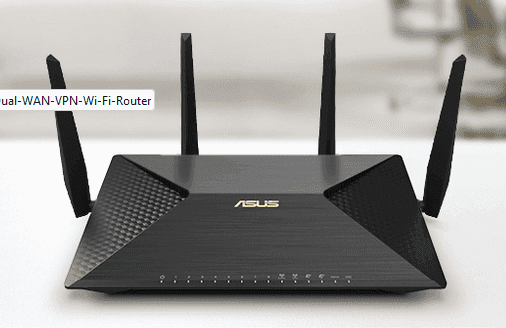
Designed for growing businesses, the BRT-AC828 offers fast and stable connections to multiple devices—it even gives you an automatic backup internet connection if your main line goes down.
The dual-band AC2600 Wi-Fi also provides superb coverage of up to 100 metres on the 2.4GHz band in open areas. More complex office layouts are also accommodated thanks to the powerful 4x4 (4-transmit, 4-receive) MU-MIMO design with four external antennas and fine-tuned power output.
There are eight Gigabit LAN ports with link aggregation, enabling up to 4Gbps LAN transfer speed. Plus, the router comes with a hardware VPN server, which is a great addition to any router with VoIP capabilities.
8. Asus RT-AC68U
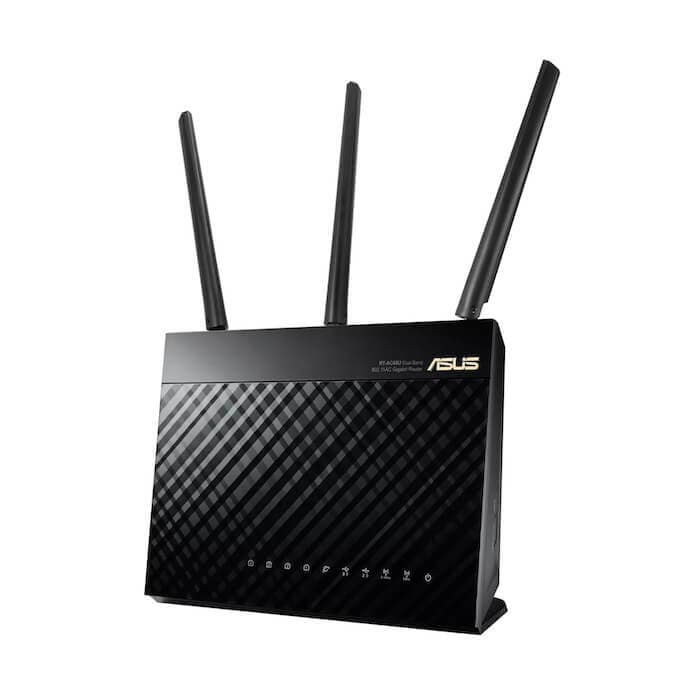
One of the pricier options on the market, the RT-AC68U justifies its price tag with equally high performance, so we’ll give it that.
It offers dual-band lightning-fast Wi-Fi speeds of up to 1900Mbps, which makes it an ideal choice for office spaces, home use, or hybrid use.
Its ASUS AiRadar and high performance antennae means that your home or office space won’t experience any dead spots, even if your house is huge and your desk is nowhere near the router!
And that high performance comes with high security, too. AiProtection (powered by Trend Micro™) identifies and blocks or neutralises any threat to any device or smart device connected to your network. The RT-AC68U can be a great option for any office-based setup or can provide coverage for your entire home.
9. Linksys EA9200 Tri-Band Router
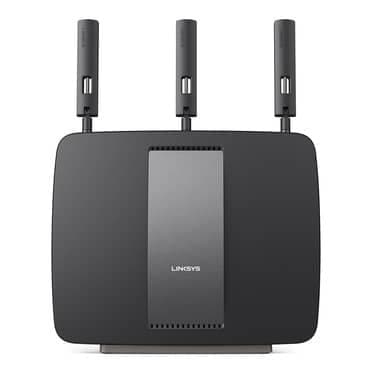
The EA9200 AC3200is a tri-band router that offers double the performance of most dual-band systems. The router has a 1 GHz dual-core CPU and up to 3.2Gbps of speed which makes it ideal for a business that has to do a lot of file sharing or data transfers.
It supports multiple devices with no effects on bandwidth so suits both small or medium-sized businesses and large households.
The router features six active antennas and three frequency bands to deliver more Wi-Fi to multiple devices at the fastest combined speedsThis means you can use multiple laptops or desktops in an office environment or a whole range of devices at home.
10. Nest Wifi - Mesh Router (AC2200)
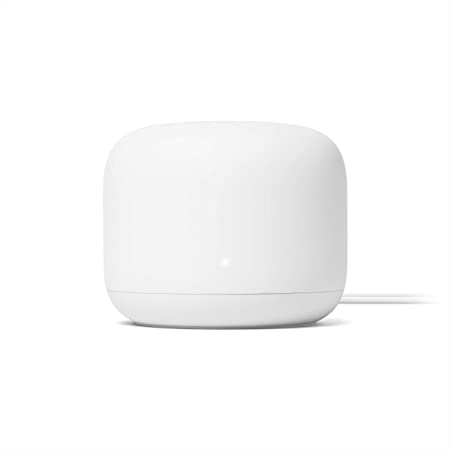
Google’s Nest Wi-Fi system is both flexible and scalable, so can grow as your needs do, whether it’s for an office network or a home-based system.
It offers coverage for an area of up to 3,800 feet, so it should cover most office spaces with a single unit. Because it covers such a large area, you can have an uninterrupted signal even when you’re moving around the office on a call (audio or video).
Plus, the router can handle up to 200 devices at any one time, so you can have a pretty large team using it.
Oh, and if you have Google Assistant or Alexa, Nest can integrate pretty easily with these systems too.
Like most Google devices, it’s designed to be easy to use. You can set up and configure your Wi-Fi network right in the app with just a few clicks. And that’s it, you’re ready to go!
Ready to pick a VoIP router?
There is little doubt that switching to VoIP brings a lot of benefits to your organisation. But that initial decision to switch leads to a whole raft of other decisions. For example, Dialpad has a softphone app that works across all devices. So do you save money by allowing employees to use their own device? Or spend more of your budget to provide them with desk phones?
Choosing your communication system is one part of the puzzle. But choosing the right VoIP router is just as important. Knowing what issues you may face and what security protection both your router and communication systems will use can help you make the right decision.
Pair your VoIP router with the best communications platform
Take phone and video calls, send SMS and instant messages—and communicate however you need to, with anyone, from anywhere. Test drive Dialpad with a 14-day free trial! Signup takes just a few minutes, and you'll be set up with a virtual phone number too.

